Find Help
More Items From Ergsy search
-
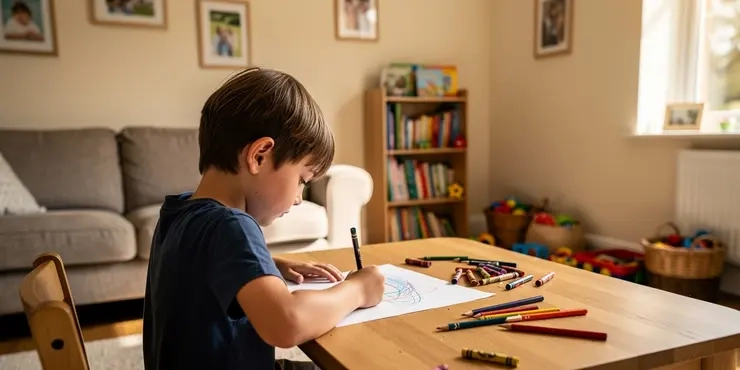
Attention deficit hyperactivity disorder (ADHD) - Introduction
Relevance: 100%
-
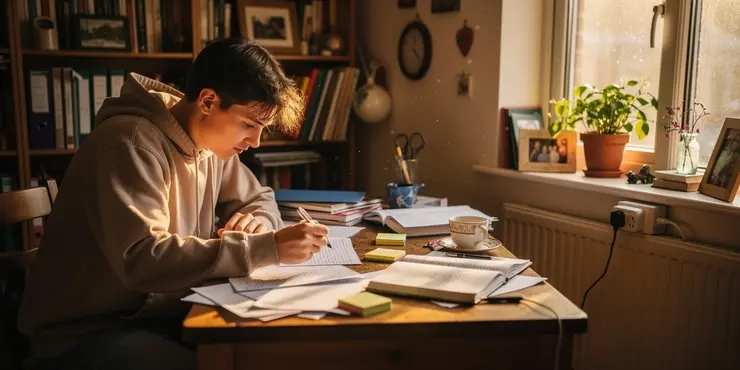
Attention deficit hyperactivity disorder (ADHD) - Living with ADHD
Relevance: 99%
-
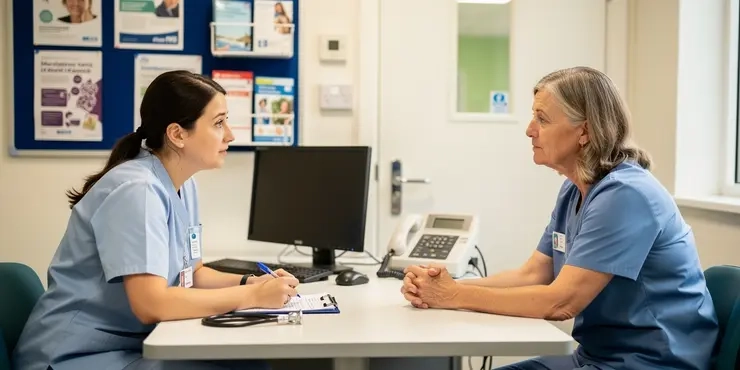
Attention deficit hyperactivity disorder (ADHD) - Diagnosis
Relevance: 98%
-
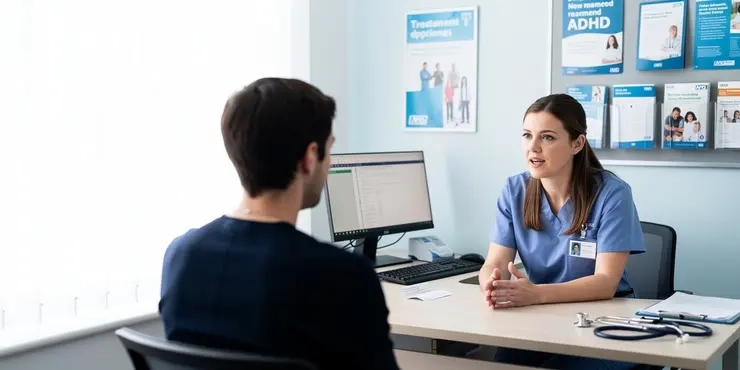
Attention deficit hyperactivity disorder (ADHD) - Treatment
Relevance: 93%
-
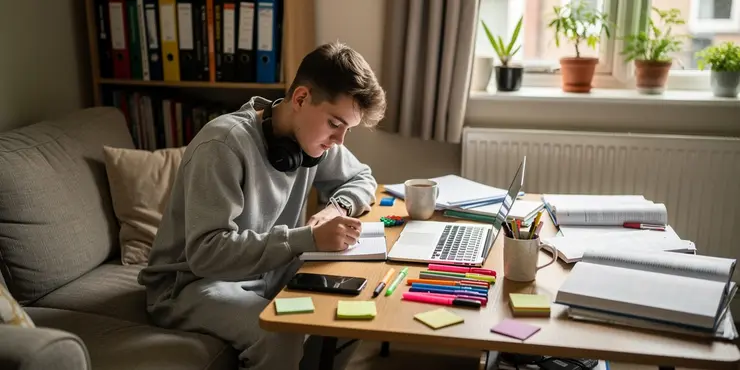
Are there different types of ADHD?
Relevance: 52%
-
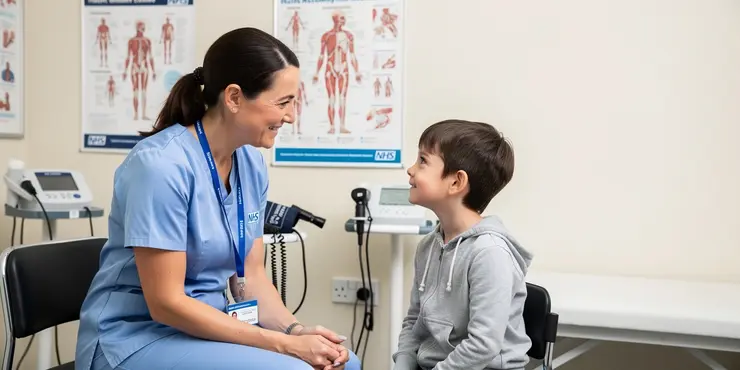
What is ADHD?
Relevance: 48%
-
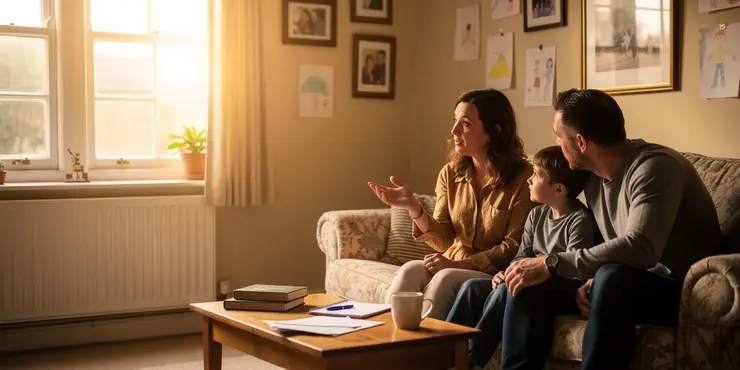
Can ADHD be inherited?
Relevance: 47%
-

Is ADHD more common in boys or girls?
Relevance: 46%
-
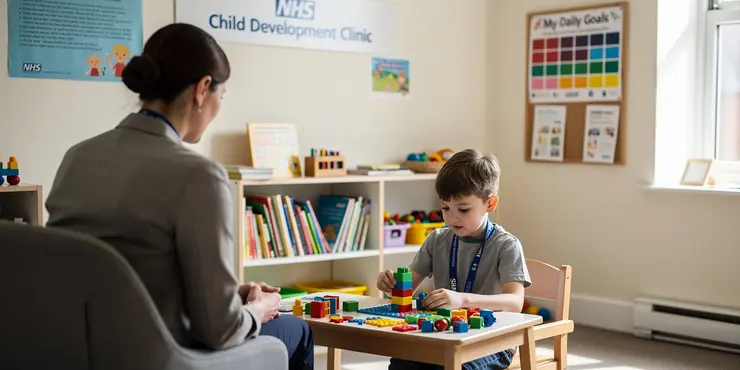
How is ADHD diagnosed?
Relevance: 46%
-

What are the main symptoms of ADHD?
Relevance: 46%
-
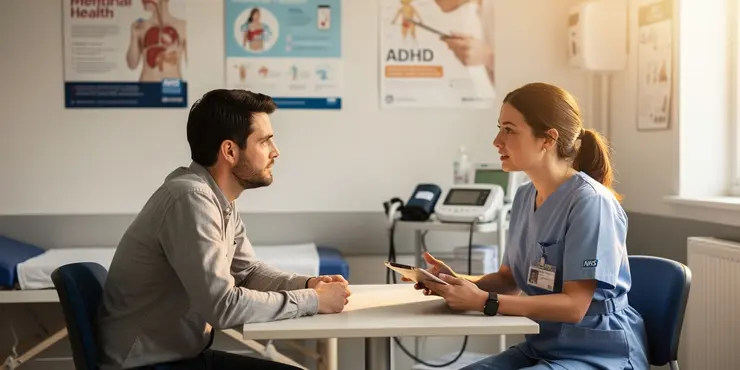
What causes ADHD?
Relevance: 45%
-
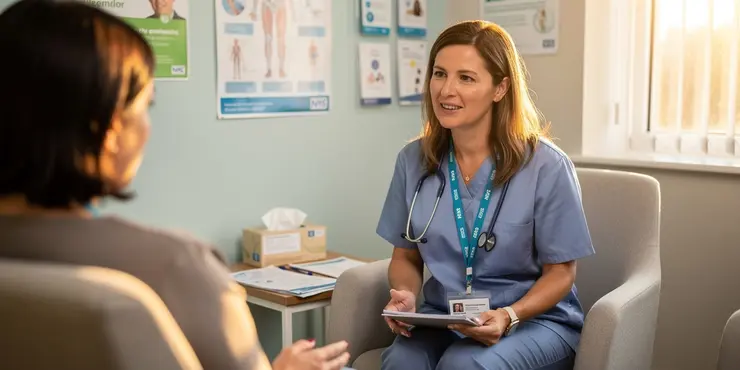
Can adults have ADHD?
Relevance: 44%
-

Is there a cure for ADHD?
Relevance: 44%
-
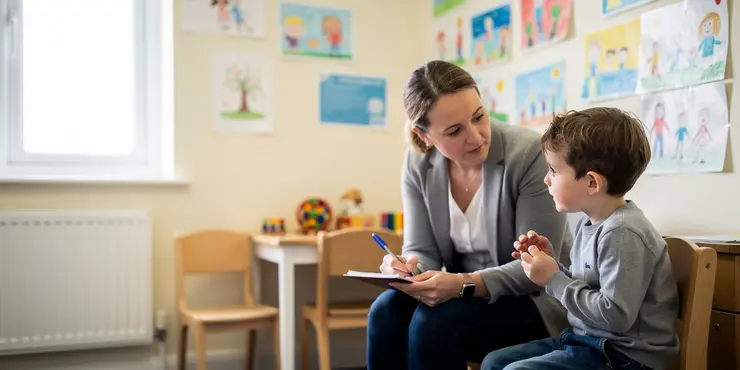
What role does the environment play in ADHD?
Relevance: 43%
-
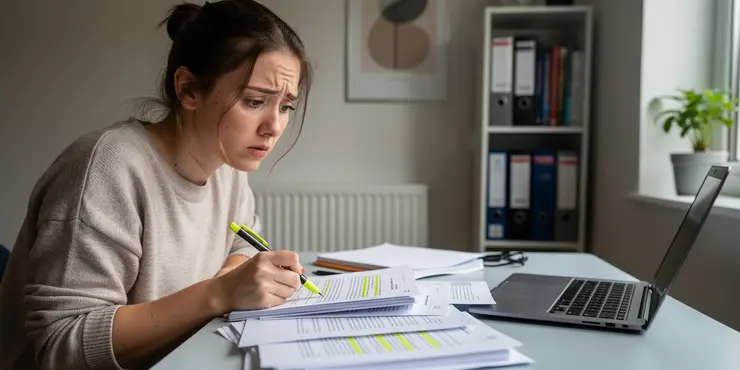
Are there any risks associated with untreated ADHD?
Relevance: 43%
-
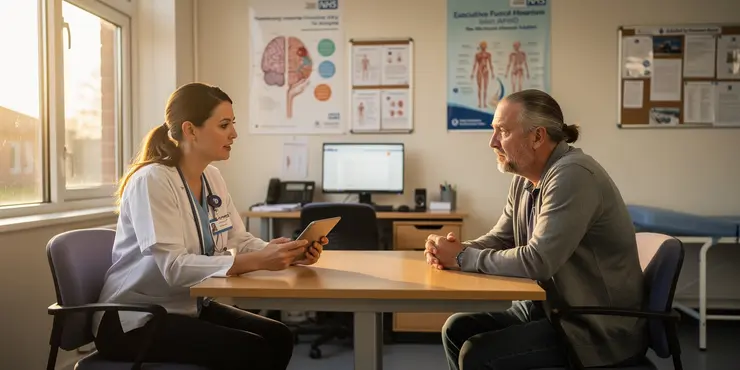
How does ADHD affect executive function?
Relevance: 42%
-

Can lifestyle changes help manage ADHD?
Relevance: 40%
-
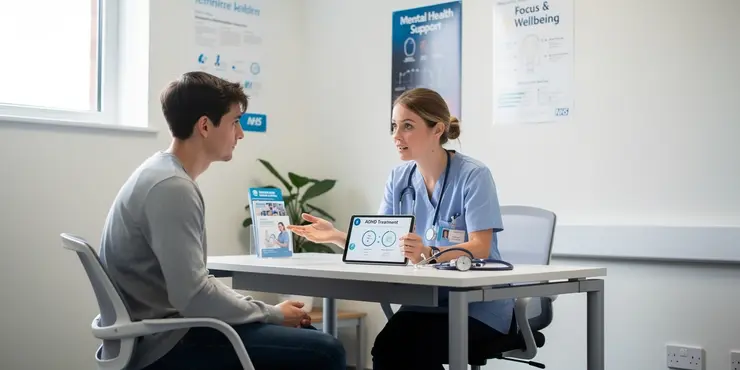
What are common treatments for ADHD?
Relevance: 39%
-

How can teachers support students with ADHD?
Relevance: 38%
-

Can therapy help individuals with ADHD?
Relevance: 38%
-

Can diet affect ADHD symptoms?
Relevance: 38%
-
How can I get tested for ADHD?
Relevance: 34%
-
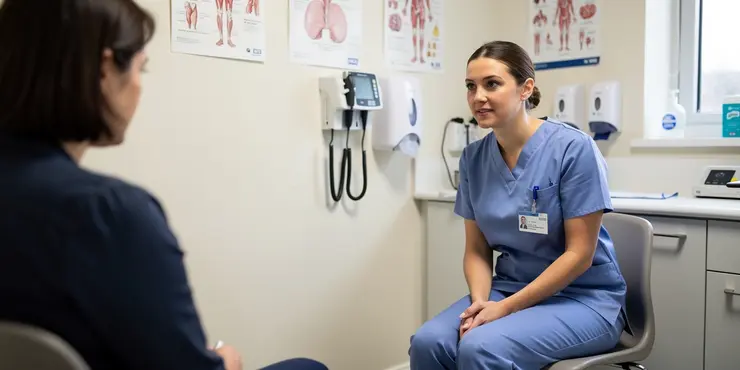
What is ADHD?
Relevance: 34%
-
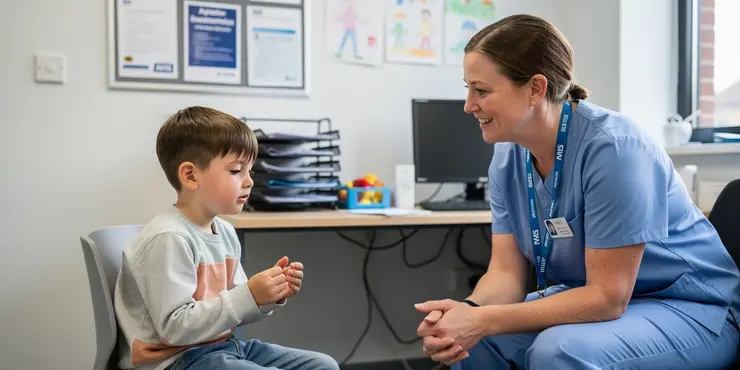
What are some common types of SEND?
Relevance: 34%
-
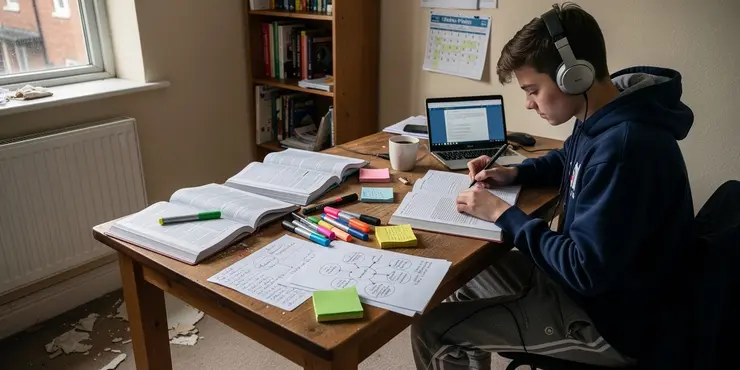
Can ADHD affect academic performance?
Relevance: 31%
-
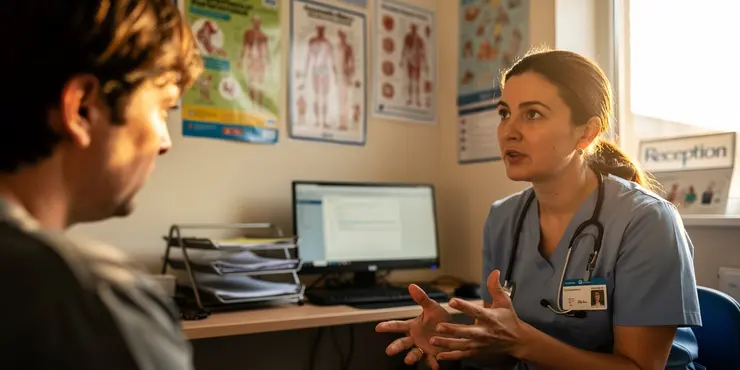
Has paracetamol been linked to other developmental issues besides autism?
Relevance: 21%
-
What is an eating disorder?
Relevance: 19%
-
What is an Eating Disorder?
Relevance: 19%
-

Eating disorders: treatment
Relevance: 19%
-

Living with Bipolar Disorder
Relevance: 19%
-
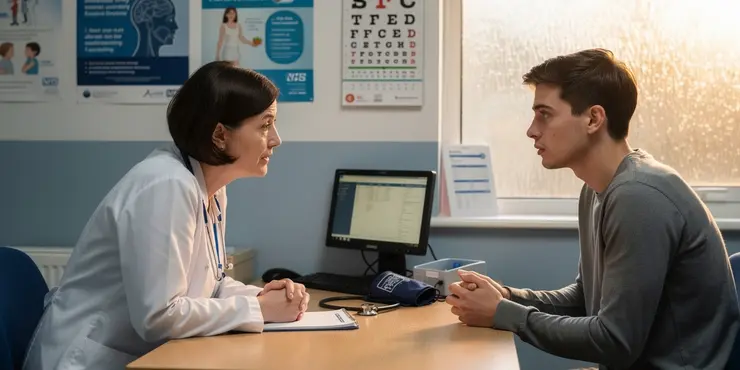
BSL - Diagnosis of panic disorder
Relevance: 18%
-
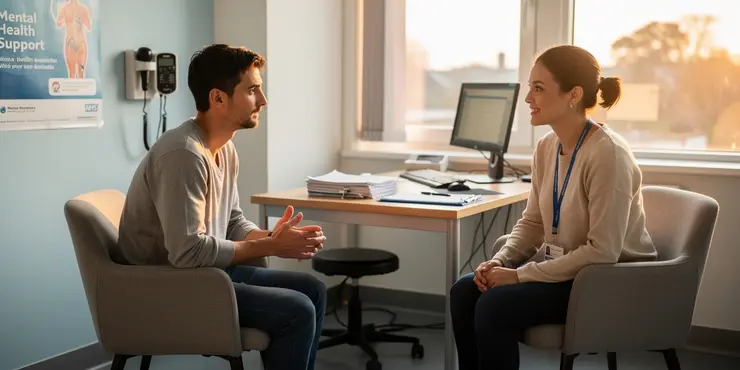
BSL - Causes of panic disorder
Relevance: 18%
-
Are there preventative measures for eating disorders?
Relevance: 18%
-
How are eating disorders diagnosed?
Relevance: 18%
-
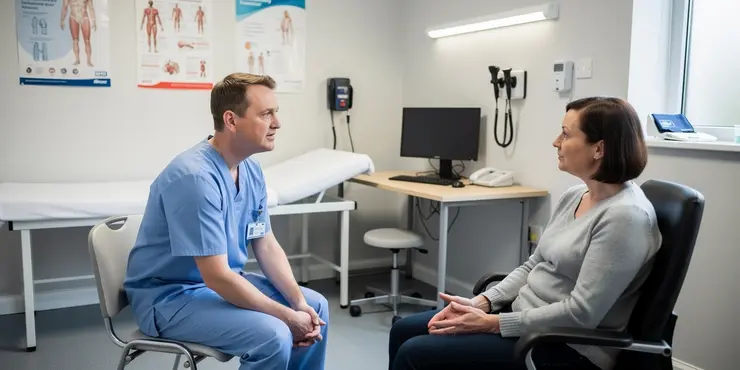
BSL - Introduction to panic disorder
Relevance: 18%
-
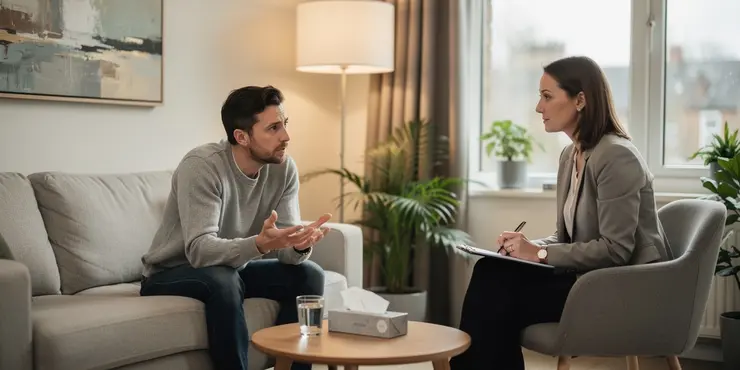
BSL - Treatment of panic disorder
Relevance: 18%
-
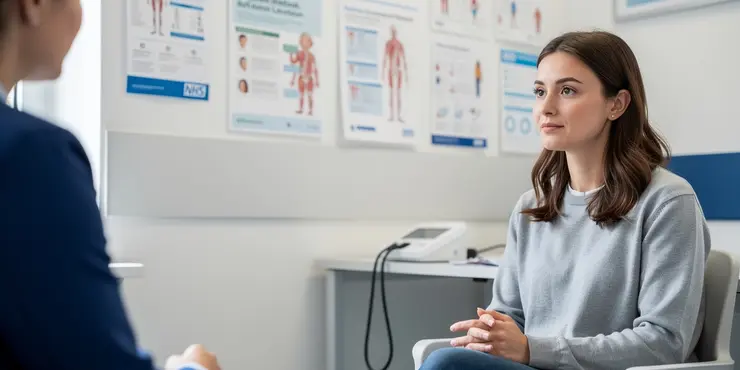
The treatment approach for an eating disorder
Relevance: 18%
-
Can eating disorders be treated?
Relevance: 18%
-
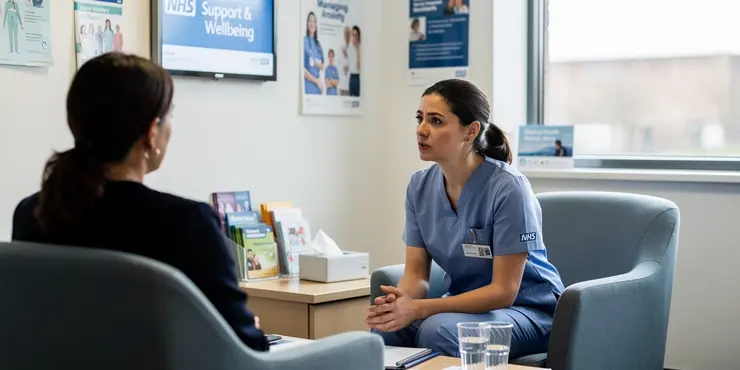
BSL - Symptoms of panic disorder
Relevance: 18%
-
What are some common myths about eating disorders?
Relevance: 18%
Attention Deficit Hyperactivity Disorder (ADHD)
Introduction
Attention Deficit Hyperactivity Disorder (ADHD) is a neurodevelopmental disorder that primarily affects children, but can persist into adulthood. It is characterised by symptoms such as inattentiveness, hyperactivity, and impulsiveness, which can significantly impact an individual's daily functioning and quality of life. In the United Kingdom, awareness and understanding of ADHD have grown, leading to improved diagnosis and treatment options.
Symptoms
ADHD symptoms are generally categorised into two main types: inattentiveness and hyperactivity-impulsiveness. People with ADHD may exhibit symptoms from one or both categories. Inattentiveness symptoms include difficulty sustaining attention, forgetfulness, and disorganisation. Hyperactivity-impulsiveness symptoms involve excessive fidgeting, interrupting others, and acting without thinking. These symptoms can vary in severity and may change as a person gets older.
Diagnosis
In the UK, diagnosing ADHD involves a comprehensive assessment by healthcare professionals, including psychologists, psychiatrists, or specialist paediatricians. The assessment typically includes a detailed medical history, questionnaires, behavioural assessments, and feedback from teachers or caregivers. Criteria from the Diagnostic and Statistical Manual of Mental Disorders (DSM-5) or the International Classification of Diseases (ICD-10) are used to diagnose ADHD.
Treatment and Management
ADHD treatment in the UK often involves a combination of medication, therapy, and support. Medications, such as stimulants (e.g., methylphenidate) and non-stimulants (e.g., atomoxetine), can help manage symptoms. Behavioural therapies, including cognitive-behavioural therapy (CBT), can aid in developing coping strategies. Additionally, support from educational institutions and workplace accommodations play a crucial role in helping individuals with ADHD succeed.
Living with ADHD
Living with ADHD can be challenging, but with proper support and management strategies, individuals can lead successful and fulfilling lives. Awareness and acceptance of ADHD have increased in the UK, promoting better support networks and resources for those affected. Early intervention, consistent treatment, and family and community support are key to managing this complex condition effectively.
Conclusion
ADHD is a prevalent condition that affects many individuals across the United Kingdom. Understanding its symptoms, obtaining an accurate diagnosis, and accessing appropriate treatment and support are essential steps in managing ADHD. Continued research and awareness efforts are necessary to ensure that individuals with ADHD receive the support they need to thrive.
Understanding Attention Deficit Hyperactivity Disorder (ADHD)
Attention Deficit Hyperactivity Disorder (ADHD) is a neurodevelopmental condition that affects both children and adults. It is characterised by symptoms such as inattention, hyperactivity, and impulsivity. In the United Kingdom, ADHD is widely recognised, and there are various resources available for those affected by the disorder.
Symptoms of ADHD
Individuals with ADHD may exhibit a variety of symptoms which can be broadly categorised into inattention, hyperactivity, and impulsivity. These symptoms can vary significantly in their presentation and severity.
- Inattention: Difficulty sustaining attention in tasks, frequent careless mistakes, and a tendency to be easily distracted.
- Hyperactivity: Excessive fidgeting, difficulty remaining seated, and an inclination to talk excessively.
- Impulsivity: Difficulty waiting for a turn, interrupting others, and making hasty decisions without considering the consequences.
Diagnosis and Prevalence in the UK
The diagnosis of ADHD in the UK typically involves a comprehensive assessment by a specialist, which may include behavioural observations, interviews, and questionnaires. The National Institute for Health and Care Excellence (NICE) provides guidelines for the diagnosis and management of ADHD. The prevalence of ADHD is estimated to be around 3-4% in school-aged children, with boys more commonly affected than girls. In adults, the prevalence is approximately 2.5%.
Management and Treatment Options
ADHD can be managed through a combination of behavioural therapies, lifestyle changes, and medication. In the UK, common medications prescribed for ADHD include stimulants such as methylphenidate and amphetamines, as well as non-stimulant options like atomoxetine. Behavioural therapies, including cognitive-behavioural therapy (CBT) and psychoeducation, can also be effective in managing symptoms.
Support and Resources
There are numerous organisations and support networks within the UK dedicated to assisting individuals with ADHD and their families. For example, the ADHD Foundation offers resources, training, and support groups. Additionally, the NHS provides information and guides for managing ADHD, and local support groups can be invaluable for those seeking community assistance.
In conclusion, ADHD is a significant neurodevelopmental disorder that affects many individuals in the UK. With the right diagnosis, treatment, and support, those with ADHD can lead fulfilling and productive lives.
Attention Deficit Hyperactivity Disorder (ADHD)
Introduction
ADHD is a brain disorder. It mostly affects children, but adults can have it too. People with ADHD have trouble paying attention, sitting still, and may act quickly without thinking. In the UK, more people know about ADHD now. This helps to find out if someone has ADHD and to help them more easily.
Symptoms
There are two main types of ADHD symptoms: trouble paying attention and being very active or impulsive. People with ADHD might have trouble focusing, forget things, or be messy. They might also fidget a lot, interrupt others, or act without thinking. Symptoms can be different for everyone and might change as they grow up.
Diagnosis
To find out if someone has ADHD in the UK, doctors do special tests. These doctors can be psychologists, psychiatrists, or doctors for kids. They look at the person's medical history, ask questions, and talk to teachers or caregivers. They use special books called DSM-5 or ICD-10 to help them decide if someone has ADHD.
Treatment and Management
Treating ADHD in the UK usually means using medicine, talking therapies, and getting support. Medicines can help with symptoms. Therapy like CBT helps people learn how to deal with ADHD. Schools and workplaces can also help people with ADHD do well by offering support.
Living with ADHD
Living with ADHD can be tough. But with support and the right help, people can do well and enjoy life. More people accept and understand ADHD in the UK now. This means there are more networks and resources to help. Getting help early, sticking to treatment, and having support from family and the community are important.
Conclusion
ADHD affects many people in the UK. Knowing the symptoms, getting the right diagnosis, and having the right treatment and support are important. More research and understanding will help people with ADHD get the help they need to do well.
Understanding Attention Deficit Hyperactivity Disorder (ADHD)
Attention Deficit Hyperactivity Disorder, or ADHD, is a condition that affects people’s brains. This can happen to both children and adults. People with ADHD might find it hard to pay attention, sit still, or control impulses. In the UK, ADHD is well-known, and there are many places that can help people with ADHD.
Symptoms of ADHD
People with ADHD might show different signs. These signs can be grouped into three main types: inattention, hyperactivity, and impulsivity. The signs can be different for each person.
- Inattention: Hard time keeping focus, making mistakes by not paying attention, and getting distracted easily.
- Hyperactivity: Moving around a lot, not able to sit still, and talking a lot.
- Impulsivity: Hard time waiting for turns, interrupting others, and acting quickly without thinking.
Diagnosis and Prevalence in the UK
To find out if someone has ADHD in the UK, a doctor will do tests that include watching behavior, asking questions, and filling out forms. There are rules to help doctors decide if someone has ADHD. About 3 to 4 out of 100 children in school might have ADHD. Boys are more likely to have it than girls. In adults, around 2 or 3 people in 100 might have ADHD.
Management and Treatment Options
People can manage ADHD by using different methods like therapy, changing lifestyles, and taking medicine. In the UK, doctors might give medicine like methylphenidate or amphetamines. There are also other medicines like atomoxetine. Therapies like cognitive-behavioural therapy (CBT) can help too.
Support and Resources
There are many groups in the UK that help people with ADHD. The ADHD Foundation is one such group. They offer advice, training, and support groups. The NHS also gives information on how to manage ADHD. Local groups can be great for meeting other people with ADHD.
In conclusion, ADHD is an important disorder that affects many people in the UK. With good diagnosis, treatment, and support, people with ADHD can have happy and successful lives.
Frequently Asked Questions
What is ADHD?
ADHD stands for Attention Deficit Hyperactivity Disorder, a mental health condition that affects an individual's ability to focus, stay still, and control impulses.
What are the main symptoms of ADHD?
The main symptoms of ADHD include inattention, hyperactivity, and impulsivity. These symptoms can vary in severity and may present differently in children and adults.
How common is ADHD in the UK?
ADHD is relatively common, affecting about 2-5% of school-aged children in the UK. It also affects adults, though the prevalence in adults is less clearly defined.
What causes ADHD?
The exact cause of ADHD is not known, but it is believed to be a combination of genetic, environmental, and neurological factors.
Can ADHD be diagnosed in adults?
Yes, ADHD can be diagnosed in adults. Many adults with ADHD were not diagnosed as children, and the symptoms may become more noticeable as they face the challenges of adult life.
How is ADHD diagnosed?
ADHD is diagnosed through a thorough evaluation that includes interviews, behavioural assessments, and sometimes questionnaires. The evaluation is usually carried out by a specialist such as a psychiatrist or a clinical psychologist.
Is there a cure for ADHD?
There is no cure for ADHD, but it can be managed with a combination of treatments including medication, behavioural therapy, and lifestyle changes.
What medications are commonly prescribed for ADHD?
Common medications for ADHD include stimulants like methylphenidate (Ritalin) and amphetamine-based drugs (Adderall), as well as non-stimulant medications like atomoxetine (Strattera).
Are there non-medication treatments for ADHD?
Yes, non-medication treatments for ADHD include behavioural therapy, cognitive behavioural therapy (CBT), psychoeducation, and lifestyle changes such as diet and exercise modifications.
Can children with ADHD outgrow the condition?
Some children may see a reduction in symptoms as they grow older, but ADHD often continues into adulthood. The severity and presentation of symptoms can change over time.
How can schools support children with ADHD?
Schools can support children with ADHD by providing accommodations such as extra time for assignments, a quiet environment for tests, and behavioural interventions.
What should parents do if they suspect their child has ADHD?
Parents who suspect their child has ADHD should speak with their child's GP or school nurse for initial guidance and potentially seek a referral to a specialist for a comprehensive evaluation.
Can diet and nutrition affect ADHD symptoms?
While diet and nutrition alone cannot cause or cure ADHD, some studies suggest that certain dietary changes, such as reducing sugar intake and ensuring a balanced diet, might help manage symptoms for some individuals.
Is ADHD linked to other mental health conditions?
Yes, individuals with ADHD are at a higher risk of having other mental health conditions such as anxiety, depression, and learning disabilities.
Are there support groups for people with ADHD in the UK?
Yes, there are several support groups and resources available in the UK for people with ADHD and their families, including organisations like ADHD UK and the National Attention Deficit Disorder Information and Support Service (ADDISS).
What is ADHD?
Attention deficit hyperactivity disorder (ADHD) is a neurodevelopmental disorder that affects both children and adults. It is characterised by symptoms of inattention, hyperactivity, and impulsiveness.
What are the main symptoms of ADHD?
The main symptoms of ADHD include trouble focusing, difficulty staying on task, impulsive behaviour, and hyperactivity. These symptoms can vary in severity and affect each individual differently.
Who can diagnose ADHD?
ADHD can be diagnosed by a healthcare professional such as a psychiatrist, psychologist, or a paediatrician. In the UK, a GP may refer you to a specialist for a formal diagnosis.
What causes ADHD?
The exact cause of ADHD is not known, but it is believed to involve a combination of genetic and environmental factors. Brain structure and function differences may also play a role.
How common is ADHD?
ADHD is one of the most common neurodevelopmental disorders, affecting around 2-5% of school-aged children in the UK. It can also persist into adulthood, affecting about 3-4% of adults.
Can adults have ADHD?
Yes, adults can have ADHD. Symptoms may change over time, but many adults continue to experience substantial challenges related to the disorder.
What treatments are available for ADHD?
Treatments for ADHD may include medication, behavioural therapy, and lifestyle changes. The specific treatment plan should be tailored to the individual’s needs.
Are there different types of ADHD?
Yes, there are three types of ADHD: predominantly inattentive presentation, predominantly hyperactive-impulsive presentation, and combined presentation, which reflects both inattention and hyperactive-impulsive symptoms.
Is ADHD a learning disability?
ADHD is not classified as a learning disability, but its symptoms can interfere with learning. Some individuals with ADHD may also have learning disabilities.
Can lifestyle changes help manage ADHD symptoms?
Yes, lifestyle changes such as regular exercise, a balanced diet, and a consistent daily routine can help manage ADHD symptoms. Proper sleep and stress management are also important.
Is medication always necessary for ADHD?
Medication is not always necessary and the decision to use medication should be made in consultation with a healthcare provider. Behavioural therapy and lifestyle changes can also be effective.
What are common medications used to treat ADHD?
Common medications for ADHD include stimulants such as methylphenidate and amphetamines, as well as non-stimulant medications like atomoxetine.
How is ADHD diagnosed in children?
ADHD in children is diagnosed through a comprehensive evaluation that includes a medical exam, interviews with parents and teachers, and behavioural assessments.
Can ADHD be cured?
There is no cure for ADHD, but with proper treatment and management strategies, individuals with ADHD can lead successful and fulfilling lives.
Is ADHD inherited?
ADHD tends to run in families, suggesting a genetic component. However, environmental factors also play a significant role in the development of the disorder.
What is ADHD?
ADHD stands for Attention Deficit Hyperactivity Disorder. It is a condition that affects how people pay attention and sit still.
People with ADHD might find it hard to focus or control their energy levels.
Here are some tips to help if you have ADHD:
- Use a timer to keep track of time.
- Take breaks often to rest your mind.
- Create a quiet space to help you focus.
ADHD means Attention Deficit Hyperactivity Disorder. It is a problem of the mind that makes it hard to pay attention, sit still, and control actions.
What signs show someone might have ADHD?
The main signs of ADHD are trouble paying attention, being very active, and acting without thinking. These signs can be different for each person and might look different in kids and grown-ups.
How many people have ADHD in the UK?
ADHD is when it is hard to sit still, pay attention, or control actions.
In the UK, about 1 in 20 children have ADHD. This means that in a class of 30 children, maybe 1 or 2 children have ADHD.
If you want help understanding ADHD, you can: - Ask a teacher or parent to help explain. - Use pictures to understand. - Watch videos that talk about ADHD.
ADHD is common. It affects about 2 to 5 out of 100 children who go to school in the UK. Adults can have ADHD too, but we don't know exactly how many adults have it.
Here are some tools to help:
- Pictures: Use drawings or photos to understand better.
- Short sentences: Read one idea at a time.
- Reading apps: Use apps that read text aloud.
What causes ADHD?
ADHD stands for Attention Deficit Hyperactivity Disorder.
This is when a person has trouble paying attention or sitting still. It can also make it hard to remember things.
No one knows exactly what causes ADHD. But, here are some ideas:
- Brain Differences: Some parts of the brain may work differently.
- Genes: ADHD can run in families. This means it can be passed from parents to children.
- Environment: Things around us, like what we eat or if someone smoked while pregnant, can play a part.
- Early Life: Being born early or having low birth weight might affect brain development.
If you or someone you know has ADHD, talking to a doctor can help. Doctors can tell you more and give tips to make things easier.
Tools that help:
- Checklists: Write down things you need to do.
- Timers: Use a timer to know when to start or stop tasks.
- Breaks: Take short breaks to refresh your mind.
We don’t know exactly what causes ADHD. It might be a mix of things passed down from parents, things around us, and how the brain works.
Can doctors say if adults have ADHD?
Yes, doctors can find out if an adult has ADHD.
If you think you have ADHD, you can:
- Talk to a doctor.
- Take tests to find out.
- Ask for help from an expert.
Helpful tools can be:
- Writing notes.
- Using a calendar.
- Setting reminders on your phone.
Yes, grown-ups can find out they have ADHD. Lots of people didn't know when they were kids. But when they grow up, they might see the signs more because of the things they have to do as adults.
How do doctors find out if someone has ADHD?
ADHD is checked by talking to a doctor. The doctor asks questions and watches how you behave. They might use forms with questions too. A special doctor, like a psychiatrist or psychologist, usually does these checks. Try using colored overlays or audio tools if reading is hard.
Can ADHD be fixed?
We can't make ADHD go away, but we can help people feel better. To help with ADHD, we can use medicine, special talking help called behavioral therapy, and change some things we do every day.
What medicines do doctors give to people with ADHD?
For ADHD, doctors often give medicine to help. Some medicines make you more awake, like Ritalin and Adderall. There are also other kinds that are not as awake-making, like Strattera.
Can ADHD be helped without medicine?
Yes, there are ways to help with ADHD without using medicine. These ways include talking therapy, learning about ADHD, and changing how you eat and exercise.
Do kids stop having ADHD as they grow up?
Some kids might have less trouble with ADHD when they get older. But not all kids will stop having it. ADHD means your brain works a bit differently. Some people might need help with it their whole life.
It can be good to talk to a doctor to learn more. They can tell you what might help, like different tools or games. These can make it easier to focus and learn.
As children grow up, their ADHD symptoms might get better, but sometimes they stay the same when they are adults. The way ADHD looks can change as people get older.
How can schools help children with ADHD?
Schools can do a lot to help children with ADHD feel better and learn well.
- Keep things simple: Use clear and short instructions. Say what you want the child to do.
- Make a plan: Have a daily routine, so the child knows what will happen each day.
- Take breaks: Let the child have short breaks during class to move around.
- Use tools: You can use things like timers to help the child focus. Let them use soft toys to fidget with.
- Give praise: Tell the child when they do a good job. This makes them feel happy and want to keep trying.
- Work together: Teachers and parents should talk to each other and share ideas to help the child.
By doing these things, schools can make learning easier and more fun for children with ADHD.
Schools can help children with ADHD. They can give them more time to finish work, a quiet place for tests, and ways to help them behave better.
What can parents do if they think their child has ADHD?
If you think your child might have ADHD, here are some simple steps you can take:
- Talk to a doctor: A doctor can help find out if your child has ADHD.
- Keep notes: Write down things you see that make you think your child has ADHD. This can help the doctor understand.
- Use tools: There are apps and books that can help you and your child manage ADHD.
- Ask the teacher: Talk to your child’s teacher to see if they notice any signs of ADHD at school.
Remember, you are not alone, and there are people who can help you and your child.
If parents think their child might have ADHD, they should talk to their child's doctor or school nurse. They can give advice and might suggest seeing a specialist for more help.
Can food help with ADHD?
Eating healthy food can help with ADHD. ADHD is a condition that makes it hard to sit still or pay attention. Food can't stop ADHD, but it might help. Some studies say that eating less sugar and a balanced diet could help some people feel better.
Does ADHD connect to other mental health problems?
People with ADHD might also have other mental health problems like feeling really worried (anxiety), feeling very sad (depression), and have trouble learning.
Is there help for people with ADHD in the UK?
Yes, there are groups that help people with ADHD in the UK.
They are called support groups.
In these groups, people talk and share ideas.
You can learn helpful tips and meet others like you.
Search online for ADHD support groups near you or ask your doctor for advice.
Yes, there are places in the UK where people with ADHD and their families can get help. Some of these places are called ADHD UK and ADDISS. They help people with ADHD.
What is ADHD?
ADHD means Attention Deficit Hyperactivity Disorder. It can make it hard to sit still or pay attention. You might feel very active and find it hard to focus.
If you have ADHD, you can try different things to help, like:
- Take breaks often to help focus better.
- Use a timer to keep track of time.
- Make a to-do list to remember tasks.
- Ask grown-ups for help when needed.
ADHD is something many people have and there are ways to make it easier to manage.
ADHD stands for Attention Deficit Hyperactivity Disorder. It is a brain condition that can affect kids and grown-ups. People with ADHD can find it hard to focus, stay still, or think before doing something.
Here are some tips that might help:
- Use a planner or a calendar to remember things.
- Take short breaks to help focus better.
- Ask for help if you need to understand something.
- Try to do one thing at a time.
What are the main signs of ADHD?
ADHD can make it hard to pay attention or sit still.
Here are some signs:
- Can't pay attention for long
- Move around a lot
- Talk a lot
- Forget things
- Hard to wait for a turn
Helpful tools:
- Use a timer
- Make a list
- Take breaks
- Ask for help
ADHD can make people have a hard time focusing. They might find it tough to stay on task. They might jump into things without thinking, and they can be very active. Not everyone with ADHD is the same, and some people might have these problems more than others.
Who can say if someone has ADHD?
If you think you might have ADHD, you need to see a doctor.
A doctor is someone who can check if you have ADHD. This could be:
- A family doctor
- A mental health doctor (a psychiatrist)
- A doctor for the brain (a neurologist)
- A doctor for children (a pediatrician)
Here are some tools to help:
- Ask someone you trust to go with you to the doctor.
- Take notes to remember what the doctor says.
- Use pictures or videos to learn more about ADHD.
Doctors can find out if someone has ADHD. Some doctors like psychiatrists, psychologists, or children's doctors (called paediatricians) know a lot about ADHD. In the UK, if you think you might have ADHD, you can talk to your family doctor (GP). They can help you see a special doctor to check for ADHD.
Why do people get ADHD?
ADHD means Attention Deficit Hyperactivity Disorder. It is when someone finds it hard to sit still and pay attention.
No one knows exactly why some people get ADHD.
There are some ideas:
- It might come from parents. This means if your parents have ADHD, you might have it too.
- It can be because of changes in the brain when you were a baby.
- Some things around us, like too much TV or sugar, might make it harder to sit still and focus. But these do not cause ADHD.
If you have ADHD, talking to a doctor or teacher can help. They can give you tips and support.
We don't know exactly what causes ADHD. But we think it comes from both genes and the world around us. The way the brain is built and works might also be important.
How many people have ADHD?
ADHD is a health problem that can change how the brain works. It happens to lots of children and adults.
About 2 to 5 out of every 100 children in school in the UK have ADHD. Some people still have it when they grow up, about 3 to 4 out of every 100 adults.
Can grown-ups have ADHD?
Yes, grown-ups can have ADHD. ADHD stands for Attention Deficit Hyperactivity Disorder. It means having trouble focusing, staying still, or being quiet.
If you think you might have ADHD, you can talk to a doctor. They can help you find out. It is also okay to ask for help from family and friends.
Sometimes, using a calendar or making lists can help you remember things. Taking breaks and exercising can also make it easier to focus.
Yes, grown-ups can have ADHD. The signs might look different as you get older, but many grown-ups still find ADHD hard to manage.
What can help someone with ADHD?
There are different ways to help people with ADHD. Here are some ideas:
- **Medicines**: Some people take medicine to help them focus and feel calmer.
- **Therapy**: Talking to a therapist can help with feelings and making good choices.
- **Skills Training**: Learning new ways to organize and plan can make things easier.
- **Support Groups**: Meeting other people who have ADHD can be helpful.
It's important to talk to a doctor or a specialist to find out what works best for you.
If a person has ADHD, there are things that can help. These include taking medicine, going to special talking sessions (called therapy), and changing some daily habits. The right help depends on what the person needs.
Are there different types of ADHD?
Yes, there are different types of ADHD. ADHD stands for Attention Deficit Hyperactivity Disorder. It affects how you focus and behave.
Here are the three types:
- Inattentive Type: This means it's hard to pay attention. You might forget things or lose stuff.
- Hyperactive-Impulsive Type: This means it's hard to sit still. You might talk a lot or have trouble waiting.
- Combined Type: This means you have some symptoms from both inattentive and hyperactive types.
It's important to talk to a doctor if you have questions about ADHD. They can help you understand more.
Yes, there are three types of ADHD:
1. Mostly Inattentive: This means a person has trouble paying attention.
2. Mostly Hyperactive-Impulsive: This means a person is very active and does things quickly without thinking.
3. Combined Type: This means a person has trouble paying attention and is very active and impulsive.
To help understand more, you can use pictures or talk to someone who knows about ADHD.
Is ADHD a learning disability?
ADHD stands for Attention Deficit Hyperactivity Disorder. People with ADHD can have trouble paying attention, sitting still, or finishing tasks.
ADHD is not called a "learning disability," but it can make learning hard. It can be tricky to keep up with schoolwork and pay attention in class.
To help, you can:
- Use a planner to keep track of homework and tasks.
- Take short breaks when doing work to stay focused.
- Ask for extra help from teachers or parents if needed.
Remember, lots of people have ADHD, and there are ways to make learning easier!
ADHD is not a learning disability, but it can make learning harder. Some people with ADHD might also have learning disabilities.
Can changes in how you live help with ADHD?
Some changes in your daily life might help you feel better if you have ADHD. These changes can be things like:
- Going to sleep at the same time each night
- Eating healthy food
- Exercising regularly
- Using a planner to remember things
- Taking breaks when doing tasks
There are also tools that can help, like:
- Setting timers to stay on track
- Putting reminders on your phone
- Color-coding tasks to sort them
These changes and tools might make it easier to manage ADHD symptoms.
Yes, changing how you live can help with ADHD. Try to exercise regularly, eat healthy food, and have a daily routine. Sleeping well and handling stress are important too.
Do you always need medicine for ADHD?
People with ADHD do not always need medicine. There are other ways to help. Different things work for different people.
- Talking to a doctor: A doctor can help you decide what is best.
- Therapy: Talking to someone can help you manage ADHD.
- Routines: Having a set plan each day can be helpful.
- Tools: Using reminders and checklists can help you stay on track.
Everyone is different. It's important to find what works best for you.
Sometimes you don't need medicine. Talk to your doctor to decide if you need it. Doing things like changing how you live and talking to someone who can help with your feelings can also work well.
What Medicines Help with ADHD?
When someone has ADHD, doctors can give them medicine to help them focus and calm down. Here are some names of those medicines:
- **Ritalin**
- **Adderall**
- **Concerta**
If you want to learn more about medicines for ADHD, you can:
- Ask a doctor for help.
- Use picture cards to understand better.
- Talk with someone who knows about ADHD.
There are medicines that help people with ADHD. Some of these are called stimulants, like methylphenidate and amphetamines. Other medicines are non-stimulants, like atomoxetine.
How do doctors know if a child has ADHD?
Doctors look for signs to see if a child has ADHD. They talk with the child, parents, and teachers.
Here are some things they may notice:
- The child has trouble paying attention.
- The child is very active and can't sit still.
- The child often acts without thinking.
The doctor might ask questions and use special forms to help decide. They may also use tools like checklists. It's important to talk to a doctor if you think a child shows these signs.
To find out if a child has ADHD, doctors do a few different things. They look at the child's health with a check-up, talk to parents and teachers, and watch how the child behaves.
Can ADHD go away?
ADHD is a condition that affects how people pay attention, sit still, and focus. People with ADHD may find it hard to do these things.
ADHD doesn't really go away, but there are ways to help manage it. People with ADHD can learn skills to help them focus better. There are also medicines that can help some people.
Talk to a doctor or a therapist. They can help find the best ways to manage ADHD.
Some helpful tools are: making a checklist, using a timer, and having a quiet place to work. These can help with focus and staying on task.
There is no way to make ADHD go away, but with the right help and support, people with ADHD can have happy and successful lives.
Can you get ADHD from your parents?
Some people get ADHD because it runs in their family. This means if a parent or another family member has ADHD, you might have it too.
To help understand more, you can talk to a doctor or a teacher. They can use special tools to see if you have ADHD.
ADHD can be passed down in families, which means it might be in your genes. But things around you, like your environment, can also be important in how ADHD starts.
If you find reading difficult, you can ask someone to read out loud to you. You can also use tools like audiobooks or apps that read text for you.
Useful Links
This website offers general information and is not a substitute for professional advice.
Always seek guidance from qualified professionals.
If you have any medical concerns or need urgent help, contact a healthcare professional or emergency services immediately.
Some of this content was generated with AI assistance. We’ve done our best to keep it accurate, helpful, and human-friendly.
- Ergsy carfully checks the information in the videos we provide here.
- Videos shown by Youtube after a video has completed, have NOT been reviewed by ERGSY.
- To view, click the arrow in centre of video.
- Most of the videos you find here will have subtitles and/or closed captions available.
- You may need to turn these on, and choose your preferred language.
- Go to the video you'd like to watch.
- If closed captions (CC) are available, settings will be visible on the bottom right of the video player.
- To turn on Captions, click settings .
- To turn off Captions, click settings again.
More Items From Ergsy search
-

Attention deficit hyperactivity disorder (ADHD) - Introduction
Relevance: 100%
-

Attention deficit hyperactivity disorder (ADHD) - Living with ADHD
Relevance: 99%
-

Attention deficit hyperactivity disorder (ADHD) - Diagnosis
Relevance: 98%
-

Attention deficit hyperactivity disorder (ADHD) - Treatment
Relevance: 93%
-

Are there different types of ADHD?
Relevance: 52%
-

What is ADHD?
Relevance: 48%
-

Can ADHD be inherited?
Relevance: 47%
-

Is ADHD more common in boys or girls?
Relevance: 46%
-

How is ADHD diagnosed?
Relevance: 46%
-

What are the main symptoms of ADHD?
Relevance: 46%
-

What causes ADHD?
Relevance: 45%
-

Can adults have ADHD?
Relevance: 44%
-

Is there a cure for ADHD?
Relevance: 44%
-

What role does the environment play in ADHD?
Relevance: 43%
-

Are there any risks associated with untreated ADHD?
Relevance: 43%
-

How does ADHD affect executive function?
Relevance: 42%
-

Can lifestyle changes help manage ADHD?
Relevance: 40%
-

What are common treatments for ADHD?
Relevance: 39%
-

How can teachers support students with ADHD?
Relevance: 38%
-

Can therapy help individuals with ADHD?
Relevance: 38%
-

Can diet affect ADHD symptoms?
Relevance: 38%
-
How can I get tested for ADHD?
Relevance: 34%
-

What is ADHD?
Relevance: 34%
-

What are some common types of SEND?
Relevance: 34%
-

Can ADHD affect academic performance?
Relevance: 31%
-

Has paracetamol been linked to other developmental issues besides autism?
Relevance: 21%
-
What is an eating disorder?
Relevance: 19%
-
What is an Eating Disorder?
Relevance: 19%
-

Eating disorders: treatment
Relevance: 19%
-

Living with Bipolar Disorder
Relevance: 19%
-

BSL - Diagnosis of panic disorder
Relevance: 18%
-

BSL - Causes of panic disorder
Relevance: 18%
-
Are there preventative measures for eating disorders?
Relevance: 18%
-
How are eating disorders diagnosed?
Relevance: 18%
-

BSL - Introduction to panic disorder
Relevance: 18%
-

BSL - Treatment of panic disorder
Relevance: 18%
-

The treatment approach for an eating disorder
Relevance: 18%
-
Can eating disorders be treated?
Relevance: 18%
-

BSL - Symptoms of panic disorder
Relevance: 18%
-
What are some common myths about eating disorders?
Relevance: 18%


